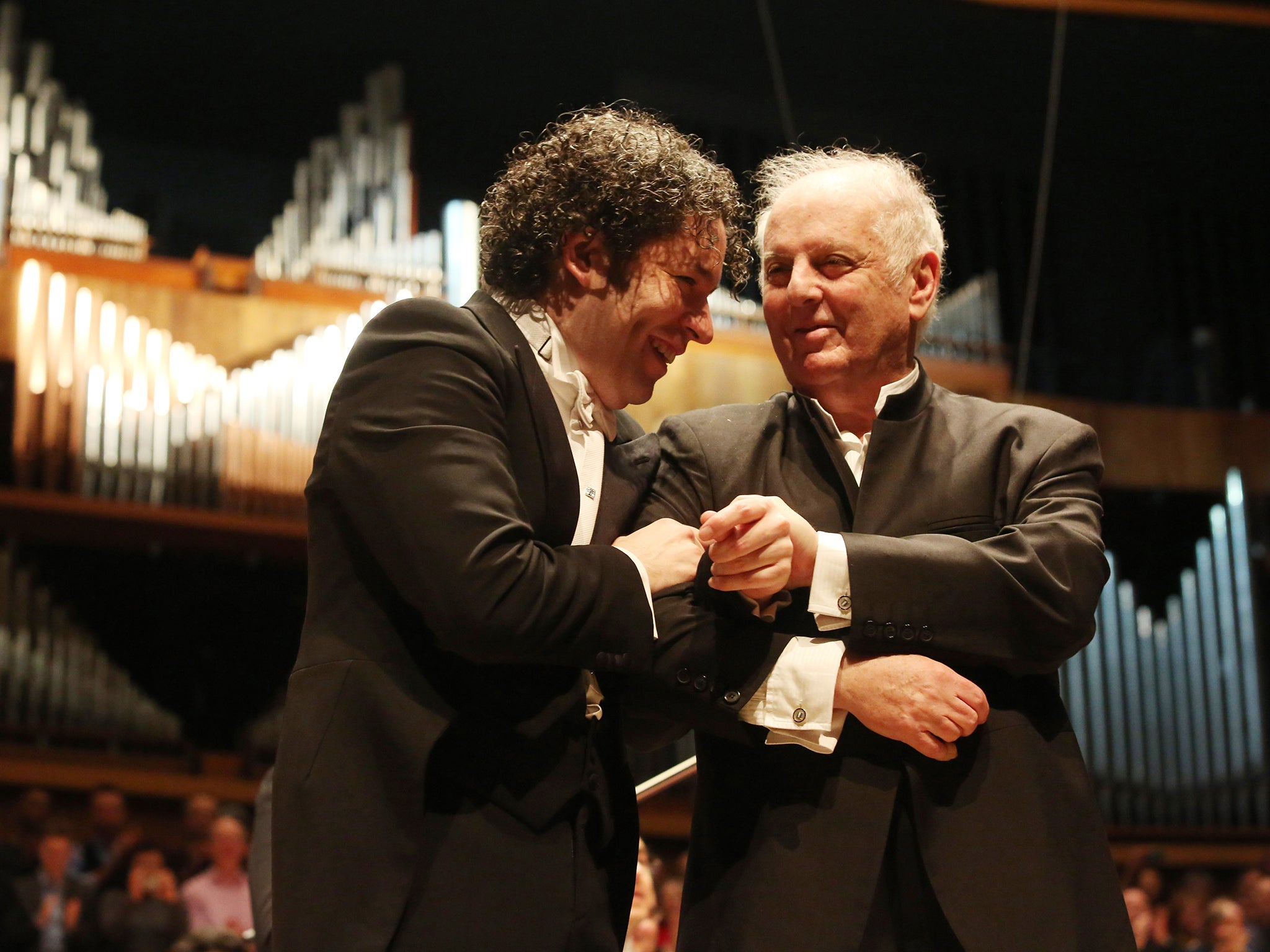Barenboim/Simon Bolivar/Dudamel, Royal Festival Hall, London, review: Symbolic passing of the musical torch
As the performance went on the pianist's spirit got into everybody, and the finale provided a triumphant close

Your support helps us to tell the story
From reproductive rights to climate change to Big Tech, The Independent is on the ground when the story is developing. Whether it's investigating the financials of Elon Musk's pro-Trump PAC or producing our latest documentary, 'The A Word', which shines a light on the American women fighting for reproductive rights, we know how important it is to parse out the facts from the messaging.
At such a critical moment in US history, we need reporters on the ground. Your donation allows us to keep sending journalists to speak to both sides of the story.
The Independent is trusted by Americans across the entire political spectrum. And unlike many other quality news outlets, we choose not to lock Americans out of our reporting and analysis with paywalls. We believe quality journalism should be available to everyone, paid for by those who can afford it.
Your support makes all the difference.To mark the sixtieth anniversary of his first performance (aged 13) at the Royal Festival Hall, Daniel Barenboim chose to play Brahms’ two piano concertos on his customised Steinway with the Simon Bolivar Symphony Orchestra under Gustavo Dudamel – symbolically passing the musical torch. But we had to wait until they were half way through the second work before Dudamel and his band managed to shake off their nerves – manifested by sluggish tempi, muffed entries, and a mousy string sound – to match Barenboim’s serene assurance. By then his spirit had got into everybody, and the finale was brought to a triumphant close.
After delivering a souped-up Schumann encore, Barenboim took the microphone and launched into a speech, starting with his gratitude to British audiences, to great British musicians – and to this great hall for the performances he’d been able to share in it. Then came his real message. This Venezuelan orchestra, and the sistema which had spawned it, was absolutely not to be seen as a political project. It was, he insisted, a musical and humanitarian project: Hitler and Stalin loved music, but look what crimes they could commit because they kept music in a separate compartment of their minds, rather submitting their behaviour to its humanizing influence.
Join our commenting forum
Join thought-provoking conversations, follow other Independent readers and see their replies
Comments